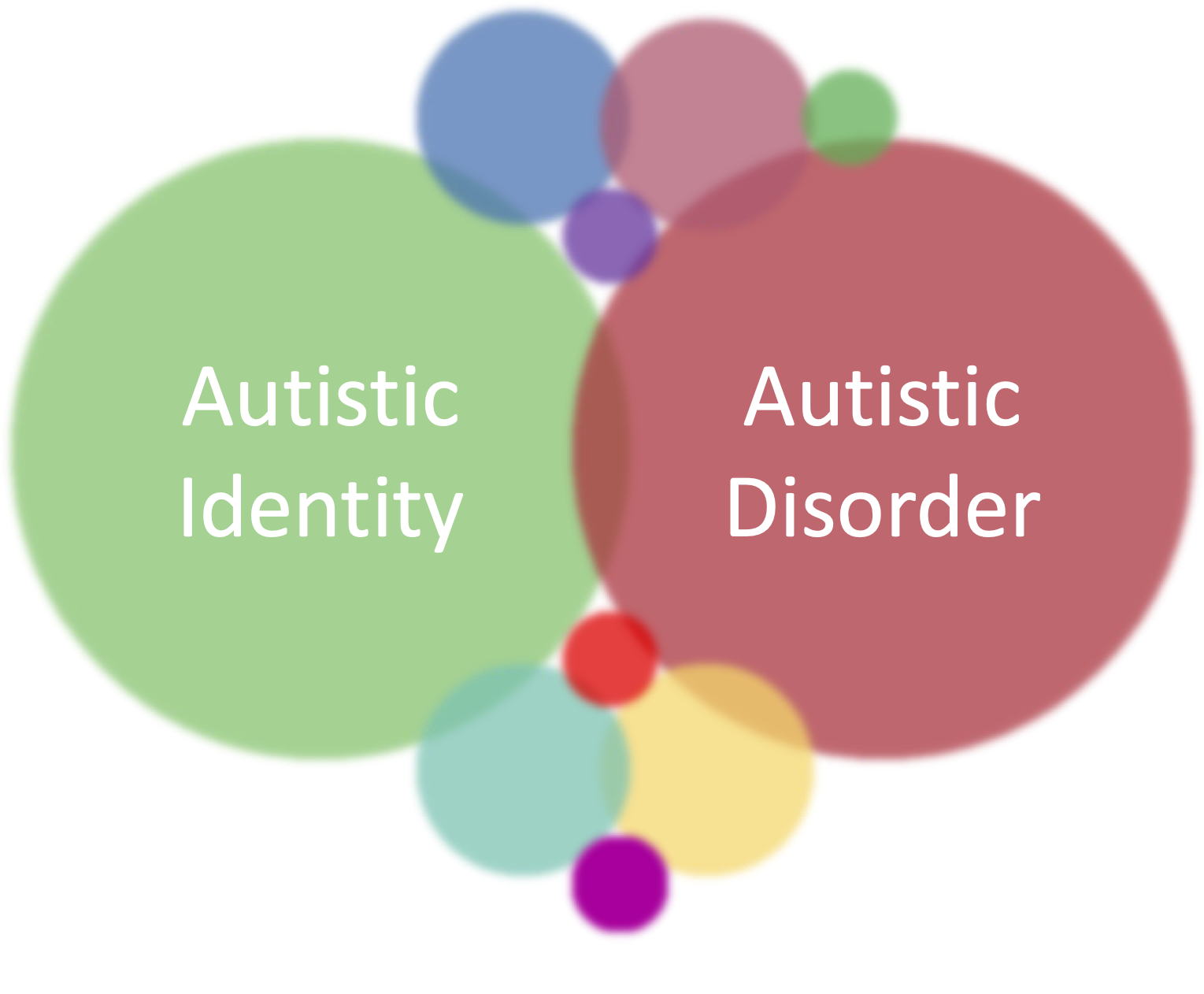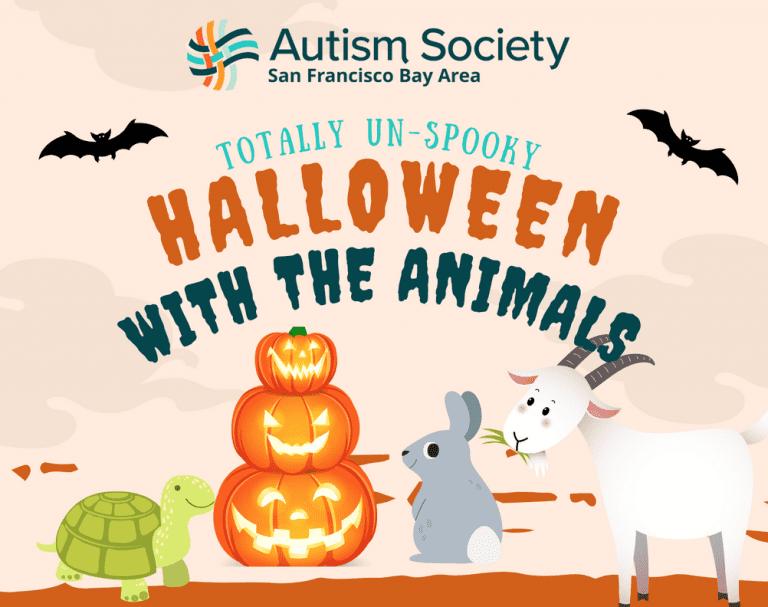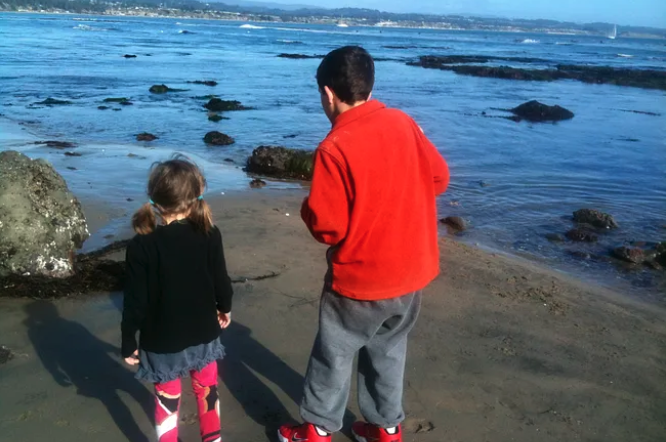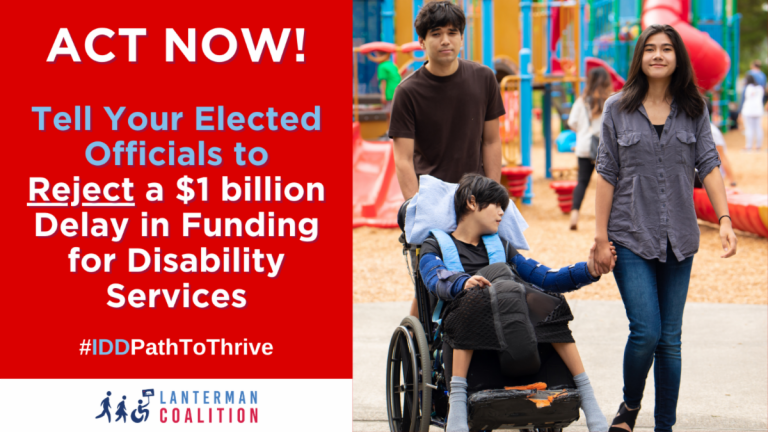The Autism Schism
Two Communities Divided by One Word
The idea of “the autism community” sounds good. But there isn’t one. There are at least two autism communities—perhaps more. The word “autism” applies to both, but that word has multiple meanings, dividing the groups that use it. To illustrate, let’s consider two main groups. These are not exact, and you can think of other groups; this is just for illustration. We can call these the Autistic Identity group and the Autistic Disorder group. People in these groups have very different needs, and they all deserve to have their needs met.
One use of “autism” is as an identity. This kind of autism is considered just a normal difference, like a personality type, not a disorder. Sometimes it’s called a social construct, where the only problem is that the rest of society doesn’t properly understand and accept those with the identity as they are. You can identify as Autistic without having a formal diagnosis of a disorder. Those who identify as Autistic often say that what they need is acceptance and connections. People in this group can and do advocate for themselves. Many write eloquent articles explaining their experiences and beliefs, and you can easily explore their articles to learn more.
A different use of “autism” refers to a serious neurodevelopmental disorder. This was the original meaning, and it’s how Bernard Rimland, founder of the Autism Society, used the term. One of three essential criteria for having Autistic Disorder is having “markedly abnormal or impaired development” in communication. That is, having a limited understanding of what others are saying and a poor ability to express oneself. That’s not the same as lacking speech. Some people with this disorder can talk or write yet can barely communicate. The 2013 introduction of Autism Spectrum Disorder in the DSM-5 official diagnostic manual changed the name and muddied the waters, but the reality did not change.
People in the Autistic Disorder group cannot tell their own stories, cannot advocate for themselves, and cannot take care of themselves. Many appear to be in great pain or distress, but they cannot express or explain what is wrong. They cannot even tell you where it hurts. It can be hard to find good information on what life is like for people in this group and for the people who love them. For those who don’t have extensive personal experience with this, it is very hard to understand the reality of Autistic Disorder. Families tend to keep the details private. Searching for “severe autism” or “profound autism” will give some information. Caring for people in this group can be extremely difficult, and it is an understatement to say that they need intensive care—all day, every day, without break, without end. The only people who can advocate for those in the Autistic Disorder group are their parents, close family members, and those who know them well. People in this group—and their families—desperately need much better treatments than we have now. Moreover, they will need society to take care of them when their parents can no longer do so.
The reality is more complex than two distinct groups. There may be any number of other groups, and groups can overlap. But the principle holds. Pretending that there is one meaning of “autism” that covers everyone described by the word is a major problem. If “autism” means the identity, while it also means the disorder, it cannot have only one meaning. Trying to juggle the multiple meanings while pretending they are the same causes offense to those in the Autistic Identity group. It causes very real harm to people in the Autistic Disorder group and their families.
A good solution might involve using different words to mean the identity and the serious neurodevelopmental disorder. While waiting for a great solution, we all need to be clear which kind of autism we are talking about. And when we hear someone say something about autism that doesn’t seem right or might even seem offensive, we need to remember that they might be using “autism” to mean something different from how we use it.





Extremely well said!
Glad to see this article. I’m the father of an autistic 16-year-old boy, and I usually describe him as “severely” autistic, which most people understand refers to the serious neurodevelopmental disorder. If folks want more information, I add that he is non-verbal, not toilet trained, and sometimes disregulated and prone to self-injury.
There is a very relevant article today in the New York Times. “Sabrina’s Parents Love Her. But the Meltdowns Are Too Much.”
“Unpredictable violence, chaotic outbursts and countless trips to the emergency room. What happens when an autistic teenager becomes unmanageable at home?”
Here’s a free shareable link:
https://www.nytimes.com/2022/06/01/nyregion/autism-child-violence.html?unlocked_article_code=AAAAAAAAAAAAAAAACEIPuomT1JKd6J17Vw1cRCfTTMQmqxCdw_PIxftm3iWka3DLDm4biOIEGYWP-kDLIqN-e9oo2nGQRN5FPPoxRft2w-lUMgptVwys6NOiqagyHh8U-8i1T39kmNXER6w5-jvnKTnjIrdznrS0-h7YPmL1XPDVgWkrcww1vZNncQ75jiFexvzHG_VnmYUrhYdXDZt7RDoGZCSIrqOoX004YIPaG0mavgomWOhZWiXRmsqe6N8DdgZTDFHHRRBv8Dp2qYMcaJ5MYvGJf1N3c9H-gL4RFmVtMI6pYpU0TILSnL9g2qXfcajBGRd_cD6VKf7Oe4WHTA&smid=url-share
Thank you for the link, it was a very emotional read.
Agree with every word. There must be a clear distinction, there is no comparison between the extremes of the spectrum. Those who class their autism as an identity cannot speak for those whose autism causes such distress to the individual where every minute of every day is a struggle and their futures are bleak. Only the parents can speak out for them, they have their best interest at heart.
My son is profoundly autistic age 19, most self harm and challenging behaviour is due to his inability to communicate or locate a pain. I worry about the future, in care or supported living he would probably end up over medicated to control behaviour, they can often cause a paradoxical reaction and make things worse as we found out, they are very sensitive to medications, there are none specifically developed for them.
We keep a daily diary of everything he eats and drinks, medication , activities, details on bowel movements, times he wakes and sleeps, his emotions, all so we can spot possible causes of changes in behaviour, and perhaps give pain killers and laxatives for constipation rather than strong meds for the resulting behaviours. Who else would care as we do. No one has the right to criticise parents speaking the truth about severe autism.
There needs to be an immediate escalation in research on treatments to help them, and specific taylored provisions for the future. They have been sidelined and neglected for too long, its shameful, they are as vulnerable as young children and deserve the same support and protection throughout their adult lives.
Extremely well-said. Many more should read your article to understand the other struggles of neurodevelopmental autistics. Thanks so much for sharing this.